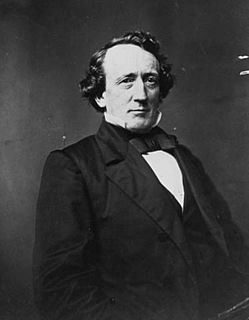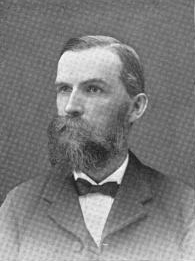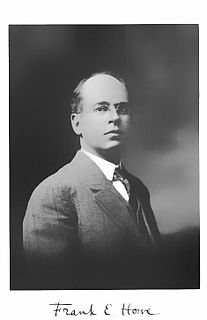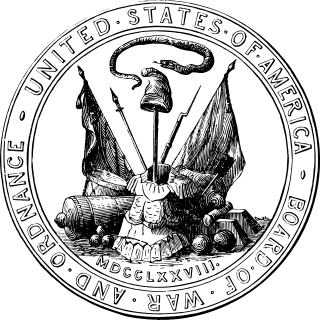
Henry Mower Rice was a fur trader and an American politician prominent in the statehood of Minnesota.

Edmund Rice was an American politician. Rice served in the U.S. Congress in Minnesota's 4th District from March 4, 1887, to March 3, 1889.

William Upham was a United States Senator from Vermont.
Levi Hubbard was a U.S. Representative from Massachusetts. Born in Worcester, Massachusetts to Jonas Hubbard and Mary (Stevens) Hubbard, he attended the common schools. He moved to Paris, Maine in 1785, where he farmed and served in local offices including selectman and treasurer of Oxford County.

William Whitney Rice was a U.S. Representative from Massachusetts.

Henry Rice was an American Army officer in the War of 1812, a leading Boston merchant, a member of the Boston City Council and a member of the Massachusetts House of Representatives.
Abbott Barnes Rice (1862–1926) was a Boston merchant, a member of the Massachusetts House of Representatives, and a member of the Massachusetts Senate.

Simon Herbert Howe was a Massachusetts businessman and politician who served as the first Mayor, of Marlborough, Massachusetts and as a member of the Massachusetts House of Representatives.

Frank Edmund Howe was a Vermont newspaperman and politician who served as Lieutenant Governor from 1913 to 1915.
Thomas Rice was a U.S. Representative from Massachusetts.
Jacob Rice (1787–1879) was a farmer from Henniker, New Hampshire and member of the New Hampshire House of Representatives, serving from 1828 to 1829.
Jonah Howe (1749–1826) was a lawyer and farmer from Shrewsbury, Massachusetts and member of the Massachusetts House of Representatives.
Jonas Howe (1786–1854) was a farmer and school teacher from Petersham, Massachusetts and member of the Massachusetts House of Representatives, serving in 1845.
Jonas Holland Howe (1821-1898) was an antebellum abolitionist, civic leader and artist from Plymouth, Minnesota and a Republican member of the Minnesota House of Representatives, serving in 1866 from the 5th Representative District in Hennepin County.
Marshall Otis Howe was a farmer, school superintendent and Justice of the Peace from Newfane, Vermont and member of the Vermont House of Representatives, serving in 1882.
Arthur Otis Howe was a dairy farmer and electrical engineer from Newfane, Vermont and a Republican member of the Vermont House of Representatives, serving from 1931 to 1933 and then reelected in 1937 and 1945. He also served in the Vermont Senate from 1947 to 1948.
Thomas Rice was a Massachusetts state legislator and judge prior to and after the American Revolution. He was a physician, educator and clergyman active in Federalist Party politics serving as a presidential elector in the 1792, 1796 and 1800 elections.
William Rice was a Massachusetts businessman and public servant, a member of the Massachusetts House of Representatives and a Registrar of deeds and Treasurer for Hampden County, Massachusetts.

George Merrick Rice was an American businessman from Worcester, Massachusetts who had a varied career in dry goods and grain retailing and the manufacture of industrial machinery. He was a pioneer in the steel industry. He was also a banker, serving as president of the Worcester Safe Deposit and Trust Company. He was president of the Worcester Common Council for three years and was a member of the Massachusetts State Senate from 1869 to 1870.












